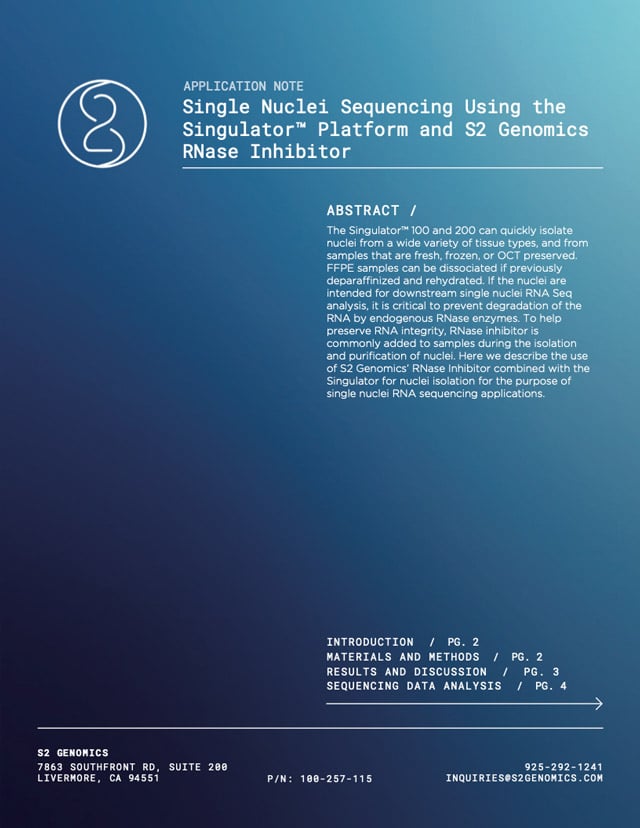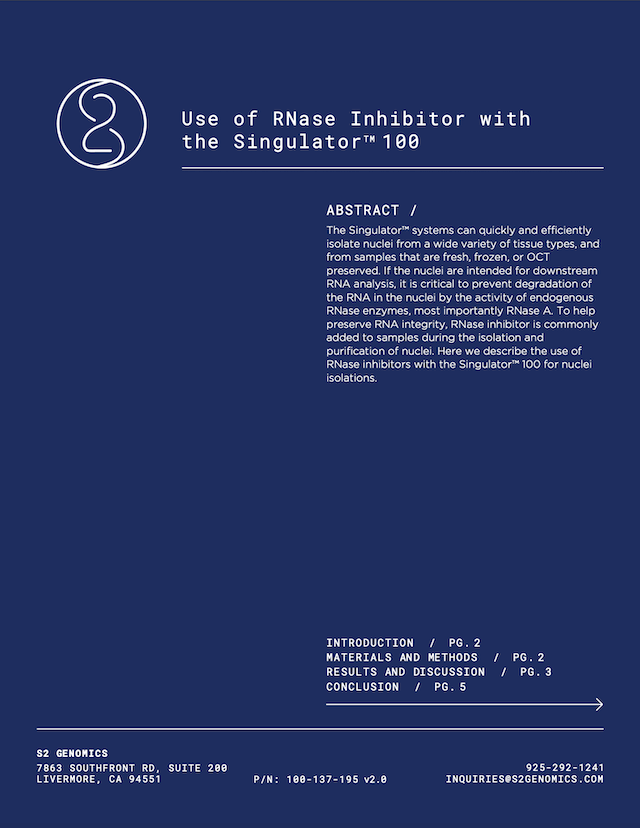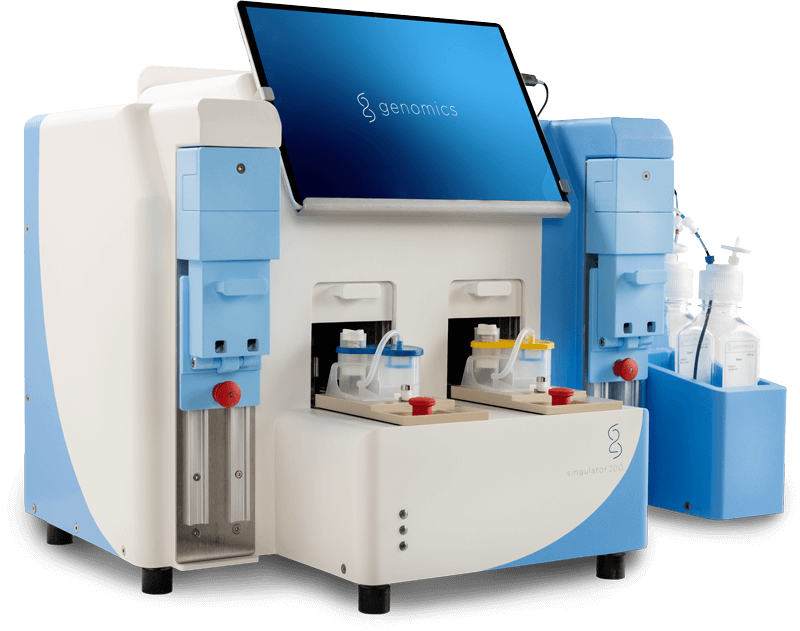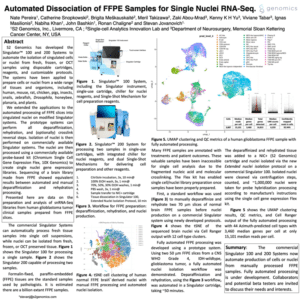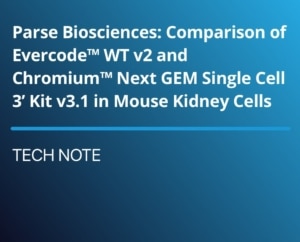RNase Inhibitor
Preserve RNA Integrity for your Downstream Analyses
The Need for Integrity
When isolating nuclei, one or more types of RNase enzymes may be released which can cause the rapid degradation of nuclear RNA. To preserve RNA quality and ensure the success of cDNA preparations for downstream snRNA-Seq analyses, an RNase inhibitor is commonly added to a sample during the nuclei isolation and purification steps.
Our RNase Inhibitor
- Specially formulated to work with our Singulator automated tissue dissociation platform.
- Provided at a 40x working concentration.
- Comes in convenient packages sized for 2, 8 or 24 samples.
Product Availability
| Part Number | Package Size | Volume | US Price |
|---|---|---|---|
| 100-255-535 | 2-sample | 200 µL | Request a Quote |
| 100-255-644 | 8-sample | 800 µL | Request a Quote |
| 100-256-761 | 24-sample | 3x 800 µL vials | Request a Quote |
Resources
Application Note: Single Nuclei Sequencing Using the Singulator™ Platform and S2 Genomics RNase Inhibitor
The Singulator™ 100 and 200 can quickly isolate nuclei from a wide variety of tissue types, and from samples that are fresh, frozen, or OCT preserved. FFPE samples can be dissociated if previously deparaffinized and rehydrated. If the nuclei are intended for downstream single nuclei RNA Seq analysis, it is critical to prevent degradation of the RNA by endogenous RNase enzymes. To help preserve RNA integrity, RNase inhibitor is commonly added to samples during the isolation and purification of nuclei. Here we describe the use of S2 Genomics’ RNase Inhibitor combined with the Singulator for nuclei isolation for the purpose of single nuclei RNA sequencing applications.
Tech Note: Use of RNase Inhibitor with the Singulator™ 100
The Singulator™ 100 can be used to quickly and efficiently isolate nuclei from a wide variety of tissue types, and from samples that are fresh, frozen, or OCT preserved. If the nuclei are intended for downstream RNA analysis, it is critical that care be taken to prevent degradation of the RNA in the nuclei by the activity of endogenous RNase enzymes, most importantly RNase A. To help preserve RNA integrity, RNAse inhibitor is commonly added to samples during the isolation and purification of nuclei. Here we describe the use of RNase inhibitors with the Singulator for nuclei isolations.


